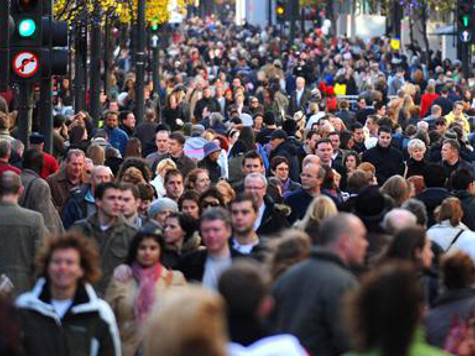Almost a third of people in Britain will be non-white by 2050, according to a new study. The Policy Exchange think tank says that ethnic minorities will make up between 20 and 30 percent of the British population within a generation. Currently, they make up 14 percent.
The findings also raise questions over the future of English identity.
The report finds that while people from ethnic minorities are happy to call themselves British, just 12 percent of Indian Britons, 15 percent of Pakistani Britons and 26 percent of Black Caribbean Britons say they are “English”. By contrast, 64 percent of white people listed “English” as their sole nationality, with just 14 percent only calling themselves “British”.
The ethnic minority population is rising due to high birth-rate among non-white Britons. A quarter of children under the age of 10 are now from ethnic minorities, while 95 percent of people aged over 60 are white. The average age among the British Bangladeshi population is just 22, while the median age among white Britons is 39.
There could also be serious political implications, as ethnic minorities are highly likely to support Labour, causing serious concerns for the Conservative Party. Although the Conservatives have relatively strong support among British Indians, that figure is still just 17 percent. The figure is lowest for Black Africans, with just four percent support. This is especially worrying for the party, given that Black Africans are one of the fastest growing ethnic groups.
At next year’s General Election, 18 percent of first-time voters will be from ethnic minority backgrounds, compared to 12 percent at the last election.
Rishi Sunak, co-author of the report, said that Britain would keep changing over the next 30 years: “These communities will continue to become an ever-more significant part of Britain, especially in future elections.”
He added: “Ethnic minorities are not one homogeneous political group. From education to employment, housing to trust in the police, politicians from all parties must understand the different issues affecting communities.”

COMMENTS
Please let us know if you're having issues with commenting.